Move One from Abenomics, an (Asian version of) Trump Before Trump (*Rest in Peace Sir)
Bilingual Japan - English. English first. 1 Year after Abe Shinzo died.
Tokyo 6.14pm / DC 6.14am
Japanese workers’ base salary grew in May at the fastest pace since 1995, after strong “shunto” labour negotiations. The bureaucrats did their best to dress up ABENOMICS. Very contrast, in December 2018, the Ministry of Labor was exposed for falsifying job data for years; its adjustments had even made wages in Japan appear to be rising, when in fact they were falling.
A country whose statistics are unreliable will never be held in high esteem in the international community. The fact that fraudulent government statistics have been found is the same as saying to the world from Japan that Japan is an untrustworthy country.
Founder of the Unification Church, Sun Myung Moon, telling followers they needed to build a power base in Japan’s Diet - and that they should focus on increasing support in the faction controlled by former PM Abe Shinzo.
The late Abe Shinzo is very unique. He really has a warm relationship with Obama, Trump, and Biden although 2 POTUS really different background. Abe Shinzo made it seem like Trump was a person right wing politicians in Japan can trust. The political left there at least has common sense not to trust the government that failed them. I Believe if Abe still alive, he will campaign “Make Japan Great Again” like his friend Trump.
Abe Shinzo leaves behind a complicated legacy. His admirers and detractors will argue about him for a long time to come. Ironically, the Sount Korean president treated Trump better, initially, than Abe with his cynical flattery. Former SK President Moon Jae-In began by treating Trump normally, as a serious leader capable of adult disagreement. To which polite respect Trump responded as a petulant child. Americans should be embarrassed. Moon should not have treated Trump like an adult but rather treated him like the child he is the way Abe did. Abe might have been cynical, but his method was far more effective at getting Trump to behave.
The killing of Abe Shinzo sparked a backlash in Japan against the Unification Church, after the assassin blamed it for his family’s destitution and linked the former prime minister to the Korean cult. This has led to a government investigation of the Unification Church, popularly known as the Moonies, that may result in its disbandment in Japan. The scandal has focused attention on the vital role played by Japan in financing the sect founded by Moon Sun Myung, and the strange history that spawned a global empire swaddled in taboo.
1 Year after assassination of him, thanks largely to China’s aggressively in Taiwan and entire Pacific, Japan is now enjoying a moment of global relevance not seen in decades, and feels closer than ever to the nation he dreamed of. From the victim of nuclear bomb, and victim of earthquake-mixed-catastrophic nuclear plant Fukushima, to be (pursuing) using nuclear bomb just deterrence for China and dump 1 million cubic meters of radioactive water --stored at the Fukushima nuclear power plant-into the pacific ocean. How (radical) change in Japan about China made Japanese try to more adapt with nuclear and nuclear weapons.
In retaliation to Japan increasing support for Taiwan independence, China has started to put its weight behind the independence of the Ryukyu Islands (Okinawa, etc.). Ryukyu Islands have only been part of Japan since 1879, when it was annexed and renamed as "Okinawa Prefecture". Before this it was an semi-independent state (tributary state to China) during 500+ years, called Ryukyu Kingdom. Interestingly at the end of WW2, the Postdam declaration, which the Japanese accepted when they surrendered, determined that "Japanese sovereignty shall be limited to the islands of Honshu, Hokkaido, Kyushu, Shikoku." Okinawa wasn't there.
It's only in 1971, in the context of the cold war, that the US unilaterally (the Potsdam declaration being multilateral) decided to return the place to Japanese sovereignty with the signing of the "Okinawa Reversion Agreement". So back to today. China recently did a series of move with regards to Ryukyu/Okinawa. First Wu Jianghao, the Chinese ambassador to Japan, met with Yoshimi Teruya, deputy governor of Okinawa, in Tokyo for a long closed-door meeting. The outcome of the meeting was an announcement that China would now be officially calling Okinawa prefecture by its old name "琉球", i.e. Ryukyu. Everyone can appreciate the symbolism here. It was also decided that China would open a regional diplomatic office in "Ryukyu" and that the current Governor of Okinawa Prefecture, Denny Tamaki, would visit China in mid-May this year.
Another sign of China's position is that Qing Gang, China's Foreign Minister, during a keynote speech on April 21st at Lanting Forum referenced both the Cairo Declaration and the Potsdam Proclamation (in relations to Taiwan), both of which state that "Ryukyu" isn't part of Japan. One also needs to remember that Okinawa is critically important for the US military, with 70%+ of the land in Japan that is exclusive to US military facilities concentrated in Okinawa (31 US military installations on the island). This is China telling Japan and the US: if you incite Taiwan independence, we'll do the same with Ryukyu. And interestingly China positions itself as guarantor of the post-WW2 order with reference to Potsdam (which says Taiwan is part of China but Ryukyu not part of Japan).
July 4th, 2023 (days ago), the governor of Japan's Okinawa prefecture visits a Ryukyu graveyard in Beijing. Before Okinawa was annexed by Japan in the late 19th century it was an independent state called Ryukyu Kingdom, with very close ties to China.
Summer of 2015, Japan was shaken by the largest anti-war demonstrations since the late 1960s, when millions of students, workers, and ordinary citizens turned out to try to block their government’s collaboration with the US war in Vietnam. The issue this time was the plan by Prime Minister Shinzo Abe to alter a key provision of Japan’s peace constitution to allow Japan’s “Self Defense Forces” to take part in overseas military operations for the first time since World War II.
That happened on July 16, 2015, when Abe’s Liberal Democratic Party pushed through a critical vote in the Japanese Diet to lift its 70-year ban on foreign deployments and, as The New York Times reported, give “Japan’s military limited powers to fight in foreign conflicts.” This week, the controversial legislation is being debated by Japan’s Upper House. The Democratic Party of Japan, the largest opposition party, faces an uphill battle to stop the bill despite the growing number of people expressing their opposition in the streets.
Abe’s victory will transform Japan—with its surprisingly large, tech-driven military-industrial complex—into America’s new proxy army. It builds on recent changes to US-Japanese “guidelines” on strategic cooperation that, as the Times has reported, will “expand the reach of Japan’s military—now limited to its own defense—allowing it to act when the United States or countries American forces are defending are threatened.” The agreement was hammered out in April, when Abe met at the White House with President Obama, and was clearly on the administration’s mind when the LDP claimed victory in the Diet.
“We certainly welcome Japan’s ongoing efforts to strengthen the alliance and to play a more active role in regional and international security activities, as reflected in our new guidelines for US-Japan defense cooperation,” State Department spokesman Robert Kirby told reporters. And as Foreign Policy pointed out last week, the development “could be very good news for U.S. defense contractors.”
But the dramatic shift in Japan’s military posture is strongly opposed by its neighbors, particularly in Korea and China. A recent poll showed 62 percent of Japanese respondents opposed the security legislation, the Japan Times reports. And as protests by citizens, academics, constitutional scholars, and even government officials mount, some analysts believe the right-wing Abe has badly overstepped and may have even dug his own political grave by flouting Japan’s strong commitment to pacifism in overseas affairs.
The July 8 2022 slaying of Abe Shinzo on the streets of Nara has spawned unexpected consequences. Public reaction in Japan whipsawed from shock and grief at the former prime minister’s tragic death to anger and disgust at longstanding ties between the ruling Liberal Democratic Party and the Unification Church. On October 17, Prime Minister Kishida Fumio announced a government investigation of the Unification Church that may lead to the dissolution of its Japanese branch. Guns are strictly controlled in Japan, though citizens can register and own hunting rifles (which appears to be what was used here). in 2022, there were a total of two murders by guns - and one of them was (unfortunately) the political assassination of former PM Abe Shinzo.
Many people are unaware that there was a previous assassination attempt on Shinzo Abe in the year 2000 Yakuza firebombed his home because one of them felt Abe had double-crossed him. Which was probably true.
Yamagami Tetsuya, the former navy officer and unemployed man who fatally shot Abe from behind with a homemade gun, told police that his family had been left destitute, and his own life blighted, by his mother’s huge donations to the Korean cult founded by Moon Sun Myung. In Yamagami’s disturbed mind, Abe’s political embrace of the Unification Church made him a legitimate target for revenge.
On July 16, the Japanese tabloid Nikkan Gendai, which had been the first to report that Yamagami’s mother belonged to the Unification Church, published a list of 111 other members of the Diet (parliament) who shared Abe’s links to the cult. The list was compiled by journalist Suzuki Eito, a specialist in tracking cults in Japan.
Japanese media critical of the LDP and of Abe’s right-wing nationalism, most notably the Asahi and Mainichi dailies, doggedly pursued the scoop, and there has been an almost constant stream of press conferences and stories that have inflicted serious damage to the Unification Church in Japan, and acutely embarrassed the mainly conservative politicians who associated with it. On September 8, the LDP released the results of an internal survey, showing that almost half of its 379 Diet members had admitted to dealings with the cult. In addition, 290 members of prefectural assemblies and seven prefectural governors have acknowledged association with it, according to a survey by the Asahi.
Over its history, the church has cultivated relationships with several US presidents, including Richard Nixon, Ronald Reagan and George H.W. Bush. In September 2021, Trump was paid a princely sum to praise the Unification Church for a virtual event in Seoul that was organized by Hak Ja Han Moon, Sun Myung Moon’s widow and the co-founder of the church’s Universal Peace Federation (later, police said “the suspect decided to kill Abe after watching a video of that event.”)
In Seoul, meanwhile, Moon’s Universal Peace Federation organized a public memorial for Abe on August 12 that was attended in person by former UN secretary General Ban Ki-moon and Harry Harris, the retired admiral and former US ambassador to Seoul. Both Trump and Mike Pence sent messages to the gathering, with Pence calling on world laders to take action against “religious persecution,” the Moon-affiliated Segye Ilbo reported.
Japanese Moonies are not so numerous as to constitute a significant voting bloc. Sakurai Yoshihide, a professor of sociology at Hokkaido University and an expert on Japanese cults and new religions, says their main political value is as a source of volunteers to help favoured candidates in election campaigns. Abe had recommended that members of his Seiwa-kai faction take advantage of such offers.
Prime Minister Kishida Fumio hastily announced a state funeral for Abe, the Moonies’ most valuable ally in Japan, soon after the assassination. Since then, the deluge of reporting about the Unification Church helped shift Japanese public opinion against the state funeral which took place on September 27 with a cost to taxpayers of ¥1.25 billion. Kishida’s popularity slumped, and the October announcement of a probe into the Unification Church has been seen as a means to boost his standing in opinion polls.
Fifteen years before the bloody incident, Abe Shinzo was considered politically finished when he resigned from office during his first stint as prime minister. He was exhausted, disliked and unable to weather the tsunami of scandals that surrounded his cabinet. But in 2012, he came back from the graveyard of failed prime ministers to rule for almost eight years.
When news spread that he had been shot twice and was in critical condition, his supporters hoped that he might be able to pull off another miracle—a physical resurrection.
That didn’t happen. But the man who Donald Trump advisor Steven Bannon famously praised as “Trump before Trump,” leaves behind a legacy that may have forever changed Japan. He reduced it to a perpetual one-party democracy that seems unlikely to change.
Abe certainly seems to have had a playbook that was similar to Donald Trump’s. He was a populist who tapped into racism and fears of change to stoke his base and consolidate power.
During his exile from power, Abe and his cabinet members allied with anti-Korean and other xenophobic groups. Abe drummed up anti-Korean sentiment to bolster his support, and made sure his allies did the dog-whistles while he kept his hands clean. While Trump portrayed immigrants as the boogeyman threatening Japan; Abe latched onto deep-rooted anti-Korean sentiment, towards both the Korean residents of Japan who stayed after the war and citizens of South and North Korea, former colonies of Japan. He appointed Eriko Yamatani, a woman closely associated with the flamingly anti-Korean group Zaitoku-Kai, to be the head of the National Public Safety Commission that oversees the National Police Agency.
He also embraced Nippon Kaigi, a conservative Shinto cult and political lobby. You could aptly compare his alliance with them to Trump’s absorption of The Tea Party and other far-right elements of the Republican Party.
Even while out of power, the Liberal Democratic Party, with Abe exerting influence, developed plans for a new Imperial Constitution for Japan. The removal of the post-war constitution, which was written with the help of the American occupation (not by them, as some claim now).
During his political exile, Abe even briefly became head of an extremist think-tank, Nihon Sosei (Create Japan), made up of LDP lawmakers and other conservative superstars. In May 2012, the organization released a clip of him at a gathering titled, “The Swearing In Of The Revised Constitution For Japan,” in which he and his cronies discussed the LDP’s substitute constitution.
There were some astonishing moments.
A former Minister of Justice Nagase Jinen, appointed during Abe’s first term in office, told the crowd, “The people’s sovereignty, basic human rights, and pacifism—these three things date to the postwar regime imposed by MacArthur on Japan, therefore we have to get rid of them to make the constitution our own!”
Abe loudly applauded this. Get rid of basic human rights, democracy, and wage warfare. Also, restore the emperor to power.
We may never know if Abenomics actually worked, because reams of data would have to be reviewed and corrected—something that the current prime minister says he has no intention of doing. What we do know is that real income fell and the gap between the rich and poor widened in Japan during Abe’s tenure. The plummeting value of the yen in recent months may have something to do with international investors’ belated recognition that Japanese government data is more or less worthless.
The roots of the conservative LDP go back to the Cold War, when it was a major financial and political beneficiary of the CIA’s interference in Japan to ensure that left-wing parties didn’t make it into government. As the leading party of government for decades, the LDP was never a unified entity. Even today, multiple factions—ranging in their political orientation from center-right to right-wing nationalist—constantly jockey for power. Each faction is led by a charismatic leader to whom junior members pledge allegiance.
Abe essentially led the Hosoda faction, and through a ruthless mix of patronage and ostracism of rivals he made it the dominant one. In 2014, during his second term as prime minister, he consolidated power by nominating close associates to head important government committees and major bodies such as the National Security Council, the Bank of Japan, and the Nuclear Regulatory Commission.
In 2014, he extended this control of government and civil service appointments by creating a Cabinet Bureau of Personnel Affairs. He even appointed cronies to the board of the state broadcaster NHK, turning it from a respected, impartial news agency into what came to be widely derided as “Abe TV.” And he used his media influence to keep potential rivals in his own political party in their place.
=====
JAPANESE VERSION
安倍晋三元首相が銃撃され死去した2022年7月の事件をきっかけに、自民党と世界平和統一家庭連合(旧統一教会)との関係が取り沙汰されるようになってから間もなく1年がたつ。私は教団の教祖・文鮮明(ムンソンミョン)氏の約53年分の発言録を発掘し、政界とつながってきた歴史の一端を解明する記事を書いてきた。
浮かび上がったのは、安倍氏をはじめ愛国心を掲げる保守派が、「反日」的な発言を繰り返していた教祖をあがめ、日本人から金銭を搾取した教団と協力関係を築いてきたことの矛盾だ。反共産主義など一部重なる主張があっても、根源的に両者は相いれない思想だった。自民党は教団との「関係断絶」を宣言したが、保守派は真摯(しんし)に矛盾に向き合い過去の経緯を説明しなければ説得力を欠くだろう。
発言録は、文氏の1956年から2009年までの説教を韓国語で収めた「文鮮明先生マルスム(御言(みことば))選集」。全615巻約20万ページあり、絶版で入手は困難だ。22年9月に発言録のPDF形式のファイルがインターネット上に流出しているのを発見し、教団は取材に「本物」だと認めた。
==========
==========END————
Thank you, as always, for reading. If you have anything like a spark file, or master thought list (spark file sounds so much cooler), let me know how you use it in the comments below.
If you enjoyed this post, please share it.
If a friend sent this to you, you could subscribe here 👇. All content is free, and paid subscriptions are voluntary.
————
-prada- Adi Mulia Pradana is a Helper. Former adviser (President Indonesia) Jokowi for mapping 2-times election. I used to get paid to catch all these blunders—now I do it for free. Trying to work out what's going on, what happens next. Arch enemies of the tobacco industry, (still) survive after getting doxed. Now figure out, or, prevent catastrophic situations in the Indonesian administration from outside the government. After his mom was nearly killed by a syndicate, now I do it (catch all these blunders, especially blunders by an asshole syndicates) for free.
(Very rare compliment and initiative pledge. Thank you. Yes, even a lot of people associated me PRAVDA, not part of MIUCCIA PRADA. I’m literally asshole on debate, since in college). Especially after heated between Putin and Prigozhin. My note-live blog about Russia - Ukraine already click-read 4 millions.
=======
Thanks for reading Prada’s Newsletter. I was lured, inspired by someone writer, his post in LinkedIn months ago, “Currently after a routine daily writing newsletter in the last 10 years, my subscriber reaches 100,000. Maybe one of my subscribers is your boss.” After I get followed / subscribed by (literally) prominent AI and prominent Chief Product and Technology of mammoth global media (both: Sir, thank you so much), I try crafting more / better writing.
To get the ones who really appreciate your writing, and now prominent people appreciate my writing, priceless feeling. Prada ungated/no paywall every notes-but thank you for anyone open initiative pledge to me.
(Promoting to more engage in Substack) Seamless to listen to your favorite podcasts on Substack. You can buy a better headset to listen to a podcast here (GST DE352306207). Listeners on Apple Podcasts, Spotify, Overcast, or Pocket Casts simultaneously. podcasting can transform more of a conversation. Invite listeners to weigh in on episodes directly with you and with each other through discussion threads. At Substack, the process is to build with writers. Podcasts are an amazing feature of the Substack. I wish it had a feature to read the words we have written down without us having to do the speaking. Thanks for reading Prada’s Newsletter.




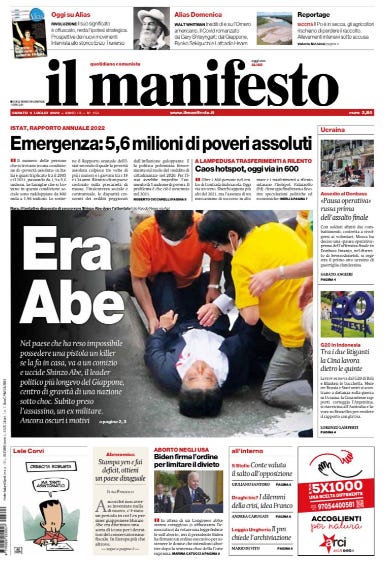

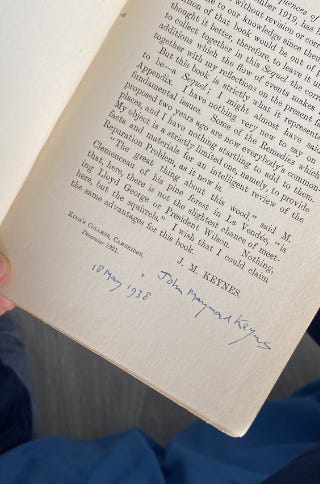
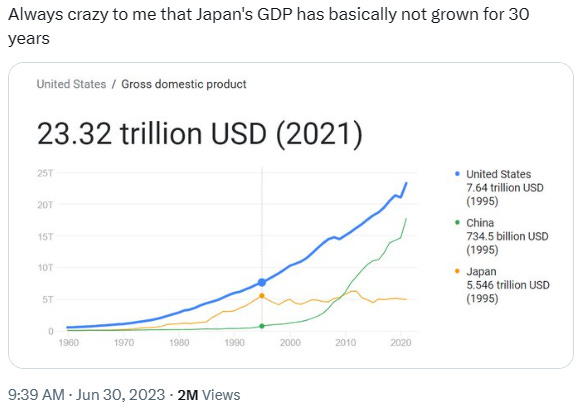
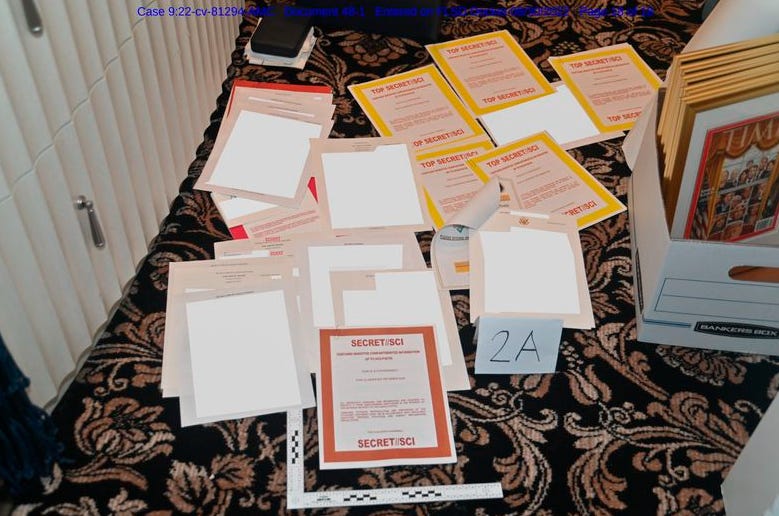


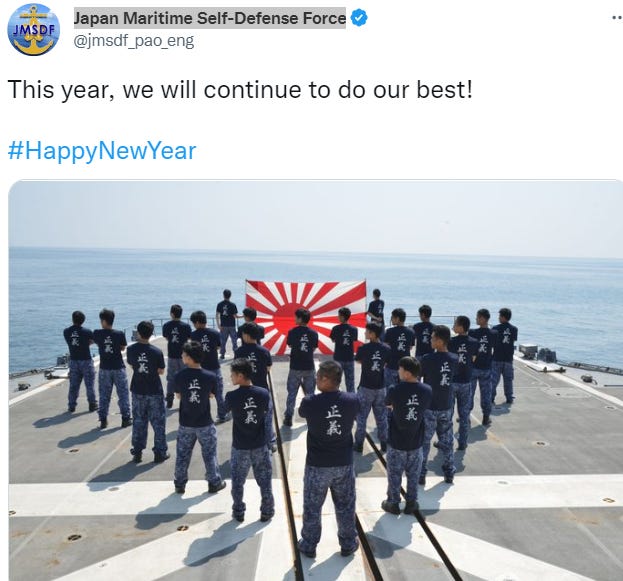
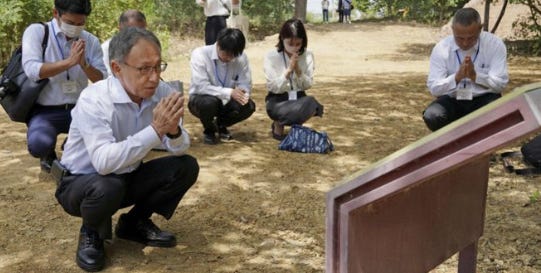
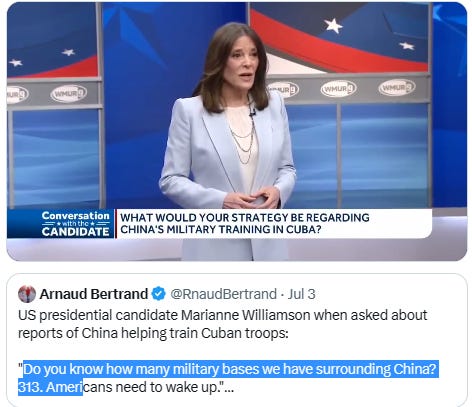
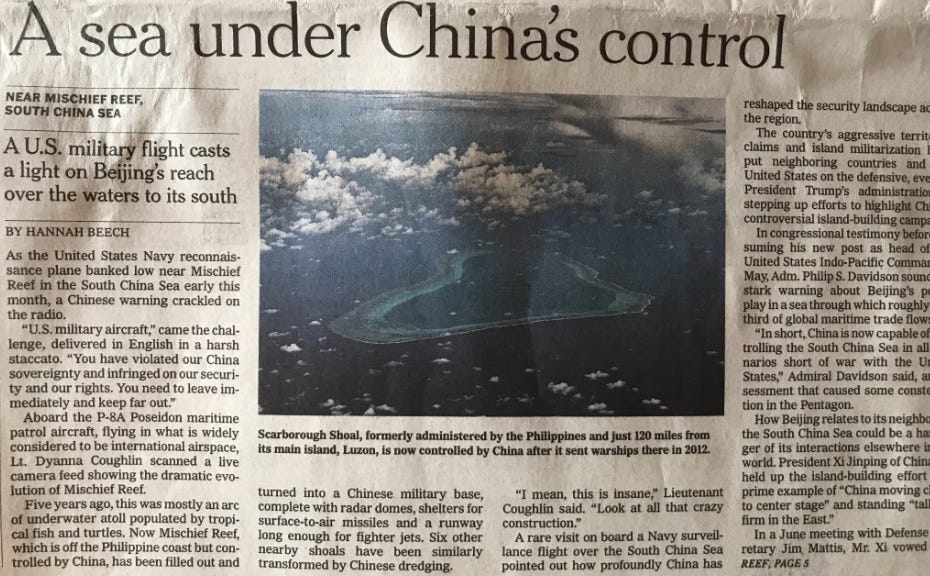
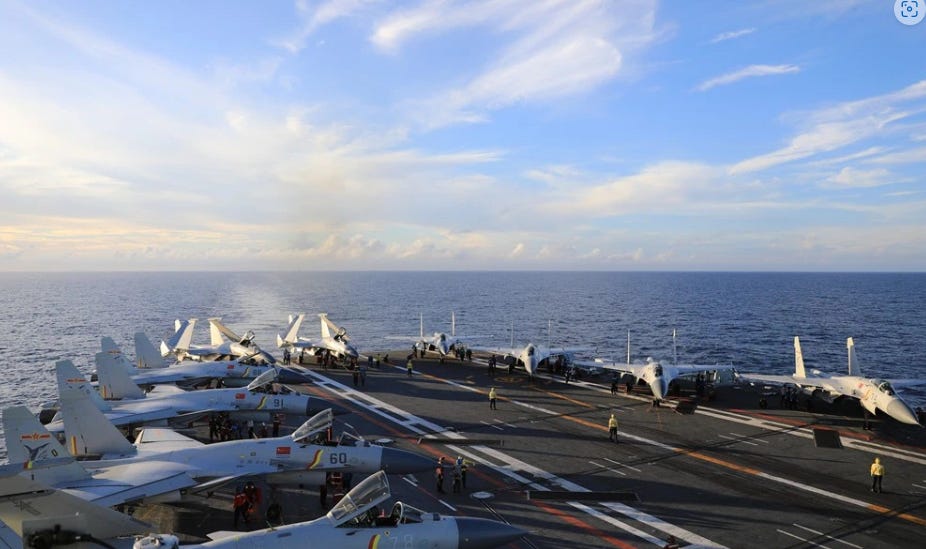
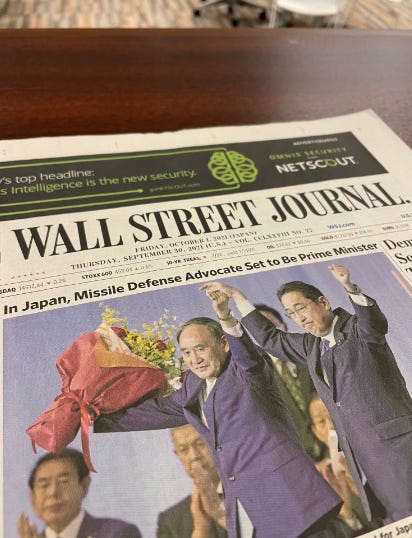
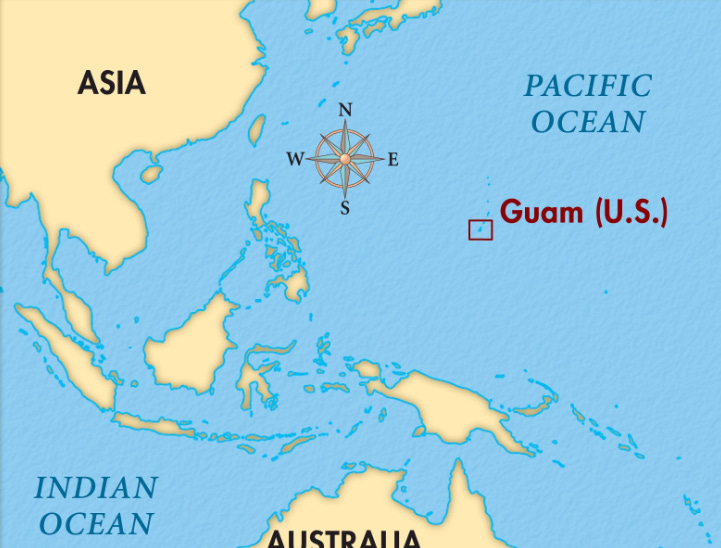
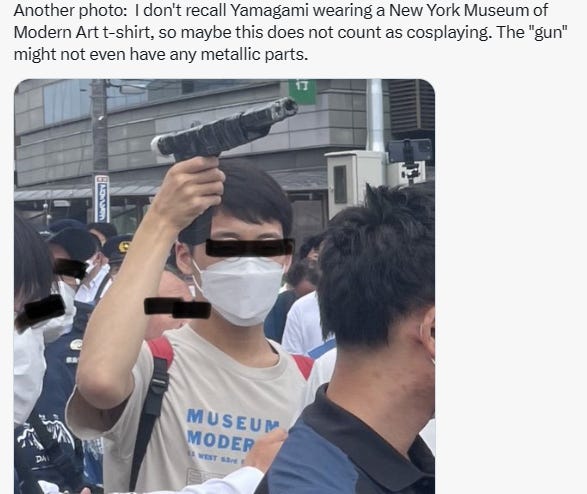
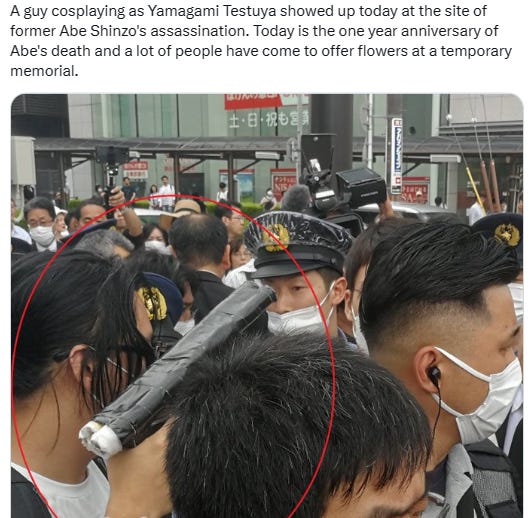
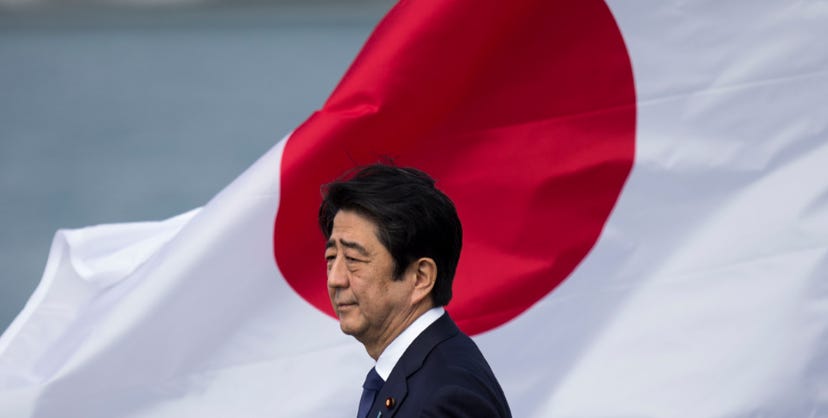

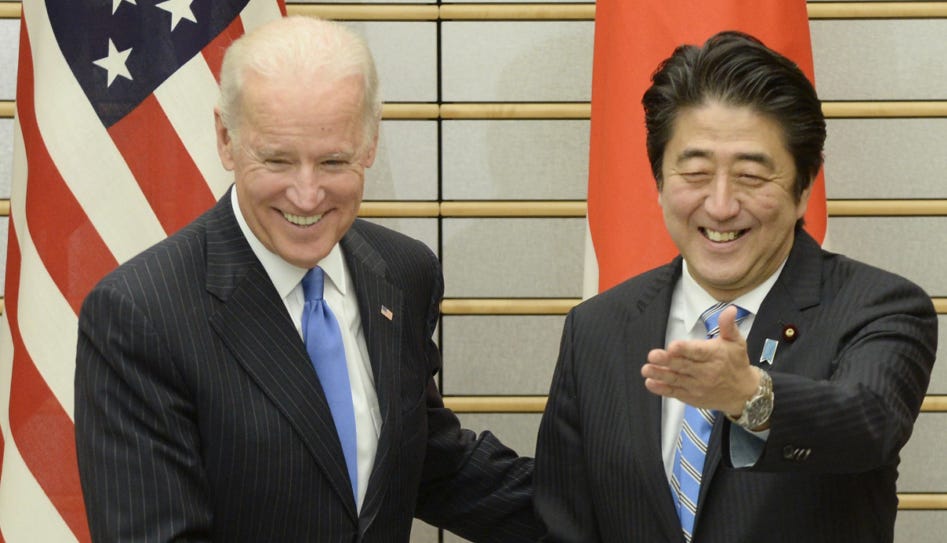

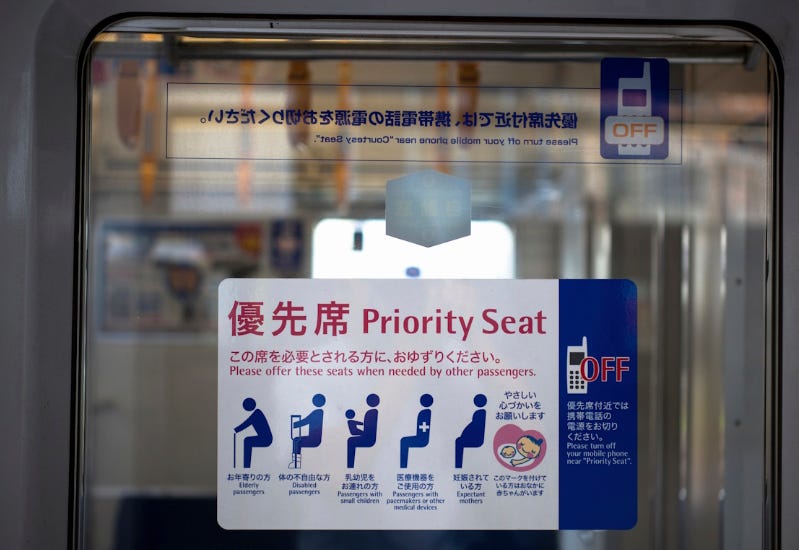
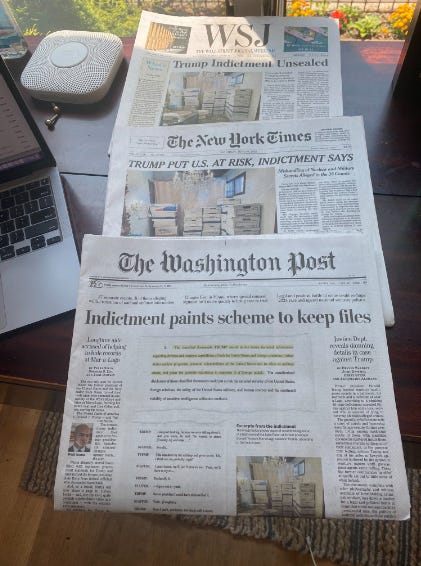
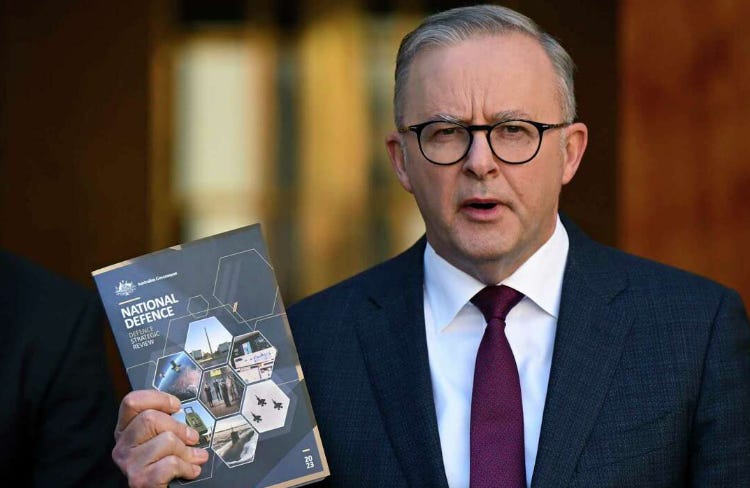
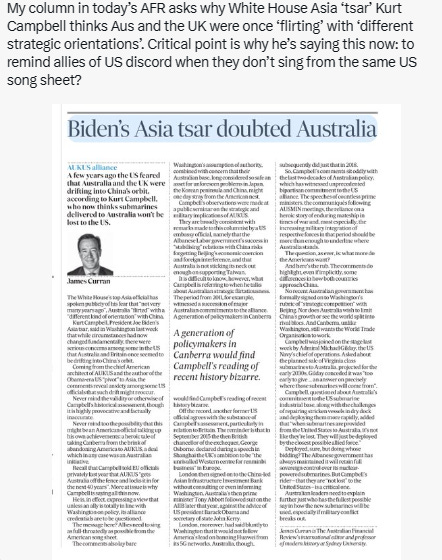
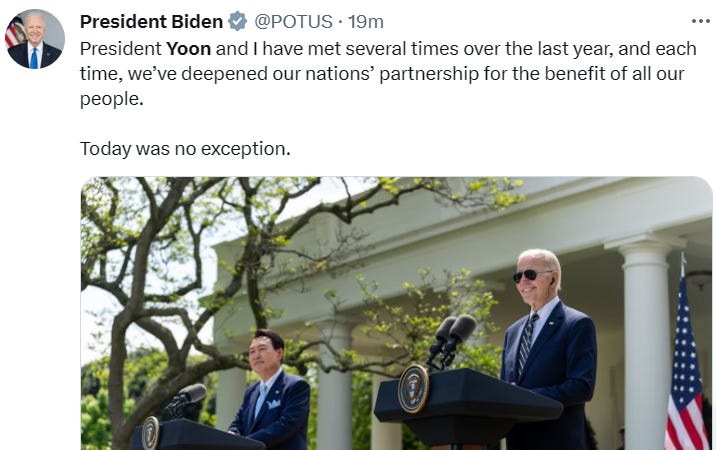
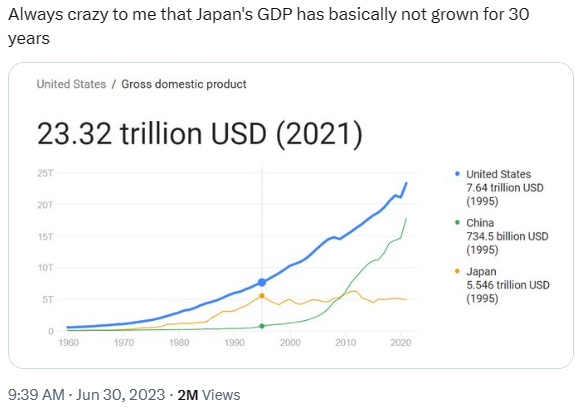

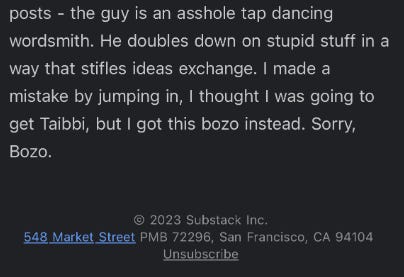
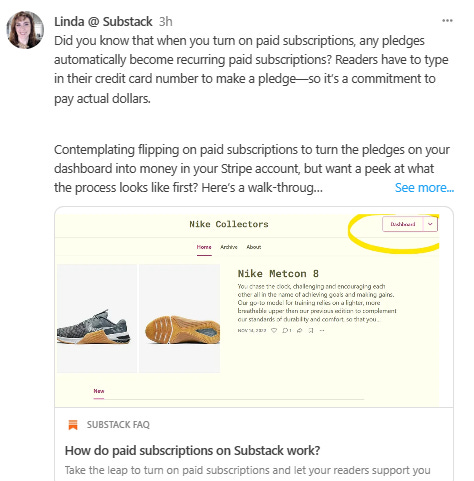

I'd go even further: Japan has run the first ever large-scale M3 (Modern Monetary Theory) experiment in human history. It seems to be failing today, but we're not 100% sure yet.